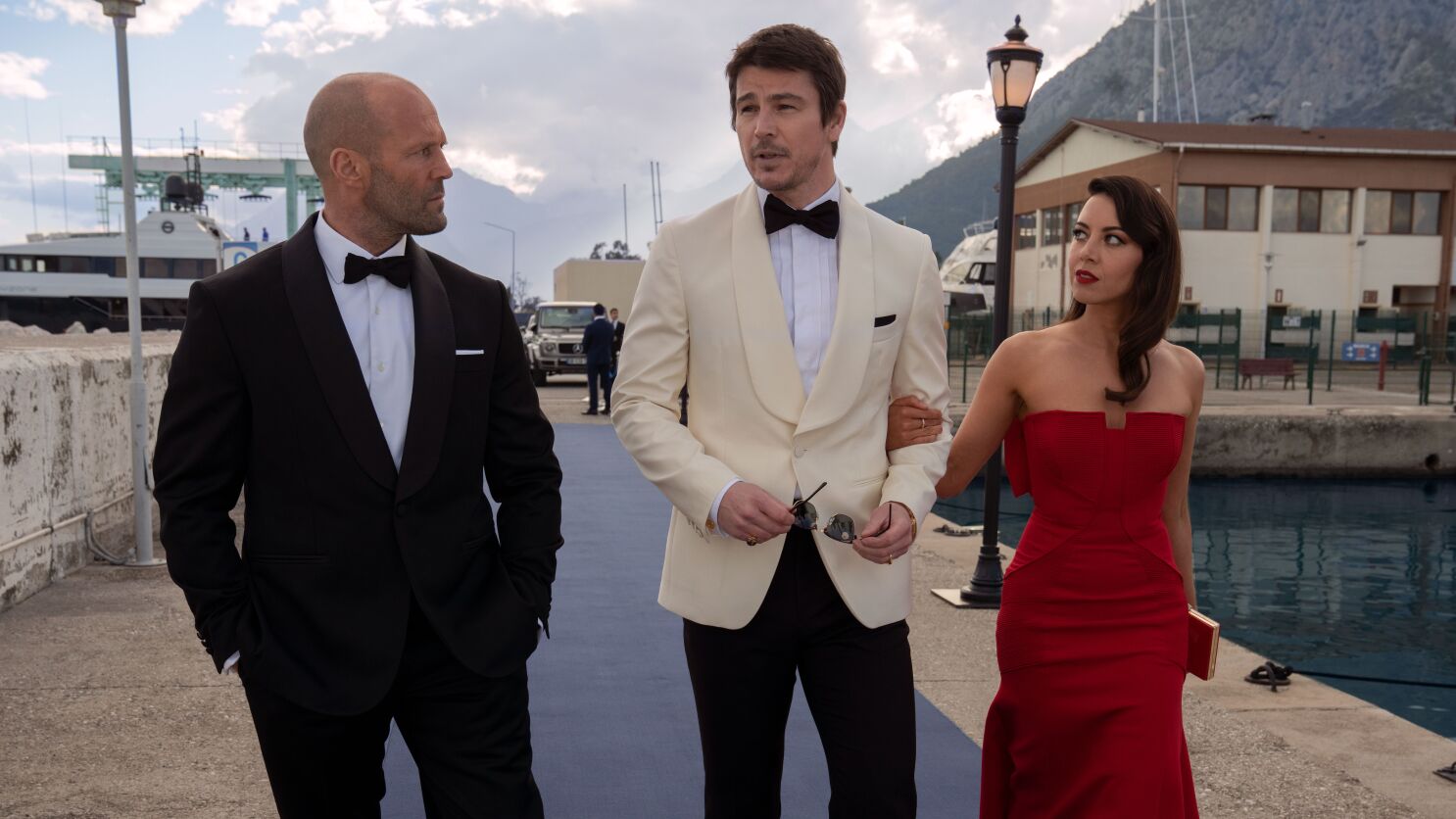Guy Ritchie’s trajectory from distinctive pop-auteur to journeyman director-for-hire has been fascinating to witness. Making his name in the late ‘nineties’90s with Anglicized Tarantino-isms of Lock, Stock and Two Smoking Barrels, he remains largely synonymous with twisty crime capers because of the sheer scale of their international breakouts, even as his filmography has veered more towards studio franchise blockbusters in years since. Placed together, the recent work in his catalog suggests a filmmaker following the classic “one for them, one for me” formula, following up an anonymous live-action take on Aladdin with an attempted return to former glories via The Gentlemen––two exhausted cash-ins of ’90s nostalgia in different keys. The public perception of what a Guy Ritchie movie is and their current reality couldn’t be more different. With the noted exception of 2021’s far-better-than-expected Wrath of Man, they are largely witless, narratively convoluted affairs with nary a memorable action set piece between them.
Operation Fortune: Ruse de Guerre, belatedly arriving on screens a year after its initially slated premiere, suggests a director chasing former glories of an altogether different variety, his creative spark fallen so far that he’s aiming to recapture the magic of prior director-for-hire gigs––in this case 2015’s The Man from U.N.C.L.E. I say such with no disrespect to that film––a stylish espionage thriller that best translated Ritchie’s earlier crime-thriller storytelling sensibilities into a summer tentpole––but to reiterate that he’s now watering-down an already-watered-down take on what a blockbuster “Guy Ritchie movie” might be. His latest is a watchable effort that coasts on the charms of its affable ensemble before fading almost entirely from memory the second it’s over. That being enough to place it among the strongest of Ritchie’s recent works should say all one needs to know about this era of his career.
Jason Statham stars as the fantastically named Orson Fortune, a British government super-spy tasked with retrieving a device known as “The Handle”––an advanced form of AI that, if unleashed, could overpower everything, from governments to financial markets, with its ability to break through security systems. The secretive device was stolen by Ukranian mobsters (the villains’ country of origin being the sole reason an otherwise-inoffensive film’s release stalled for a year) and has fallen into the hands of billionaire Greg Simmonds (Hugh Grant), who British intelligence fear will use it for destabilizing purposes. Discovering that Greg is about to throw an elite yacht party in Cannes, the Brits devise a plan – realizing the only way to get entry is via the allure of celebrity, they blackmail Greg’s favorite actor, Danny Francesco (Josh Hartnett), into attending, with agent Sarah Fidel (an oddly miscast Aubrey Plaza) assigned to play his girlfriend.
This is as far as the narrative extends, the rest of Operation Fortune aiming to gather further steam from its farcical concept; as we jump across continents and several different glamorous locations, no further comedic depth is ever applied to this straightforward tale of an actor being roped into a secret operation. If anything, Operation Fortune squares focus entirely on the surface pleasures that come with the espionage genre, as if stubbornly engineered as a response to anybody who has labeled Ritchie’s prior spy flicks too narratively convoluted.
There’s only so much these can be enjoyed when stakes never accumulate needed tension while most gags land with a thud. The former issue might be an unfortunate by-product of the film arriving in theaters during a severe cost-of-living crisis across much of the western world, making it near-impossible to care about the effects a disruption to the global financial market would cause––for many viewers it’s hard to imagine that would make things any worse than they are now. This is arguably an even-more-dated narrative detail than the ethnicity of the mobsters in cahoots with the seedy billionaire; at least that doesn’t affect the functionality of the overall story.
That the movie remains somewhat watchable is entirely thanks to its ensemble cast, almost all of whom breeze through undemanding roles derivative of earlier, funnier work––somewhat fitting when Ritchie is aiming to recapture the magic of one of his earlier spy pictures. Statham can walk the line between self-serious action lead and direct parody in his sleep––if it wasn’t for his natural charisma even when working with such an undercooked screenplay, you’d likely imagine he was––whilst Grant is utilized against type, à la The Gentlemen, to play a different sleazy geezer from London’s East End thrust into a position of power and influence. The only striking casting decision is strange utilization of Plaza as the film’s female lead: the screenplay’s confusing characterization of Sarah Fidel requires her performance to be pitched somewhere between femme fatale and the awkward persona she’s been hired to inhabit in prior projects, two character archetypes she can easily play but feel incoherent when in direct tandem.
Operation Fortune: Ruse de Guerre is the latest in a long line of diminishing returns for Ritchie, made mildly diverting through the strength of its performances even as a central spy mystery struggles to give reason why it’s worth investing in. The director’s increasing descent into directorial anonymity continues apace.
Operation Fortune: Ruse de Guerre opens on March 3.

